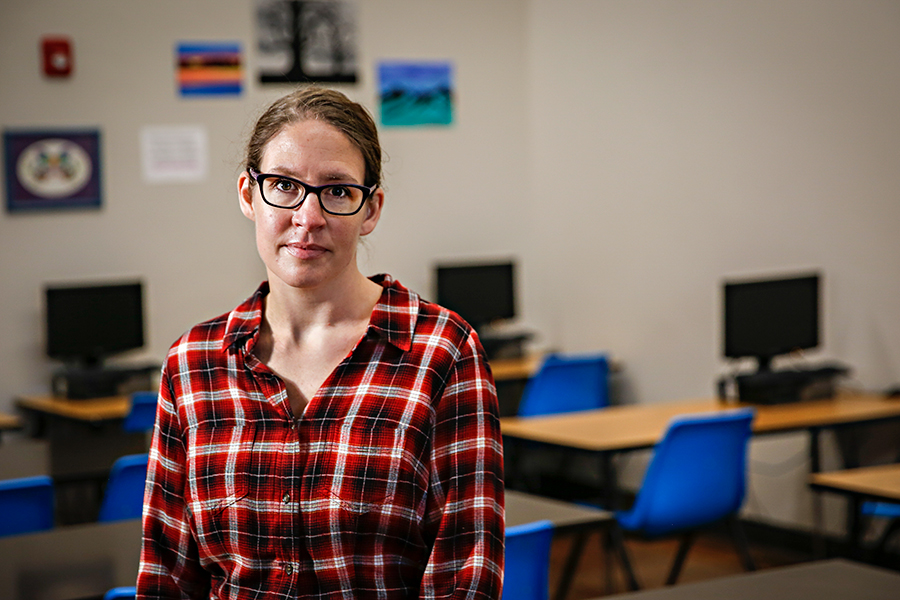Teacher Navigates Mental, Physical Fallout After Diagnosis
Bethany Shehan warns that potentially exposing others to deadly virus is ‘not a good feeling’
By Andy Viano
Bethany Shehan did everything right.
A 36-year-old mother of two and teacher at the Linderman Education Center in Kalispell, Shehan wore a mask everywhere she went. She sanitized. She washed her hands. She didn’t go to large gatherings. Then last month, on Sunday, Sept. 13, she woke up with a cough. Smoke from wildfires burning throughout the West had rolled in a day earlier, but Shehan, out of an abundance of caution, called Kalispell Regional Healthcare’s 24-hour call center. A nurse told her to get tested and the result came back one day later.
“I was in shock,” Shehan said. “It’s a weird sensation getting the call you had it. I cried a lot. I felt guilty somehow, I felt like I did something wrong even though I felt like I was doing everything right. I felt contaminated.”
More than a month later, Shehan still has no idea where she contracted the virus, and in some ways that makes her illness “even scarier.” She can’t identify any situation where she was within six feet of someone for 15 or more minutes, which is the Centers for Disease Control and Prevention’s criteria for contact tracing, although that criteria comes with the major caveat that much is still unknown about how the virus spreads, and while wearing a mask lessens one’s odds of catching the virus, it does not eliminate it. And it is even more important for those with COVID-19 — even those who are asymptomatic — to wear masks to prevent spreading the virus themselves.
Shehan experienced relatively mild symptoms during the week or so she was sick — scratchy throat, cough, muscle aches, fatigue, headache, loss of taste — but the mental weight of bringing the virus home to her family, her community and potentially her school was excruciating.
“Just the thought, feeling like I did something wrong and the fear of spreading it to my family, it was just kind of overwhelming at first,” Shehan said. “As a mom, I really just worried that I was going to harm them somehow when all you do is try to protect them.”
Shehan spent her quarantine in her bedroom with access to an in-suite bathroom, but the closest she got to her husband and her two kids, ages 4 and 6, was through a crack in the door when they dropped off her meals on a TV tray, or when she saw them through her bedroom window.
“It was hard,” she said. “I would watch them out the window jumping on the trampoline. They took it in stride. It was cute but at the same time heart-wrenching.”
While Shehan’s symptoms were on the lighter end of the COVID spectrum, she has had some lingering concerns. She described her cough as a “broken-up chest cough” and some intermittent chest pains had become more common, sending her back to the doctor. As of last week, she was awaiting the results of a follow-up chest X-ray.
More than anything, though, Shehan has been using her diagnosis as a cautionary tale, and shares a message of empathy with her students in an effort to convince them to remain vigilant against a virus that is still running rampant in their community, advocating strongly for adhering to public health guidelines.
“What I’ve been preaching is, I want you to sit here and think about everybody you have seen and talked to for more than 15 minutes or been unmasked around. Then you test positive and you have to tell all these people that you have to stay home for two weeks. It is not a good feeling. It makes you feel like a horrible person,” she said. “You might not get COVID that bad but somebody might, and somebody they infect might.”
“That was more the issue than me getting sick,” she continued. “I can handle getting sick. I’ll be fine. But everybody else might not be. Don’t be that person.”
Kalispell Regional Healthcare’s 24-hour COVID-19 hotline is available at (406) 890-7272.